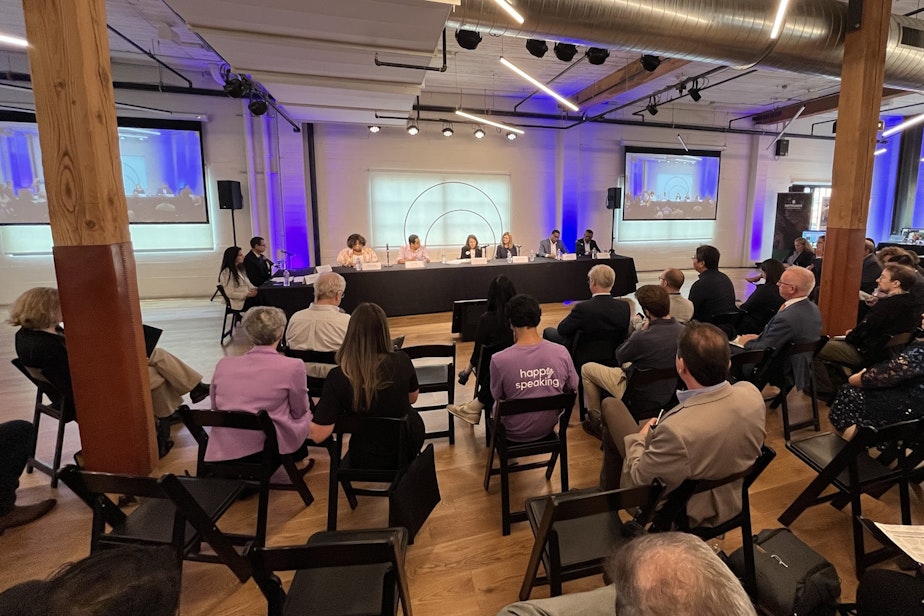AI as a public utility? Seattleites discuss regulation of the technology
This week, leaders in artificial intelligence gathered in Seattle's Belltown neighborhood at the invitation of U.S. Senator Maria Cantwell (D-WA). Their goals were to recommend ways to support the industry here and suggest regulations that protect people from unethical uses of AI.
The event began with a showcase, in which local companies and researchers showed how AI could change the face of work in Washington, especially in agriculture. Whether you're picking apples, pruning trees, or pulling weeds, there's a machine that uses AI to make your job easier.
Cantwell asked for ideas on AI regulations that wouldn’t stifle innovations like those.
Cherika Carter, who represented the Washington State Labor Council at the forum, said workers could potentially benefit from AI, in same the way that construction workers benefited from power tools after initially being skeptical of them. But she also warned that "too often, technological advances are used as a cover by the rich and powerful to concentrate their wealth and turn good family-supporting jobs into insecure, low-wage or precarious jobs."
Carter asked Cantwell to make sure labor remains at the table to ensure the benefits of AI are widely shared.

Sponsored
One question that forum participants discussed was whether Washington's economy would do better if AI were free, like a public utility, or whether it would advance faster when protected by patents.
Ali Farhadi, CEO of the Allen Institute for AI, came down on the side of open access for all.
“If I have developed something and I’ve used it, and I’ve trained a model, and I’ve developed a set of learnings along the way, those learnings belong to everybody," he said.
Farhadi said it takes an enormous amount of energy and expense to develop working AI models, which brings a high environmental cost to AI. Training AI models requires significant computing power, which uses energy and emits carbon. An open approach saves energy and resources, which would allow AI to flourish in Washington more efficiently, Farhadi said.
"So everyone can benefit from it, and someone else doesn't need to redo the experiment that I ran," he added.
Sponsored
“Even our adversaries?” Cantwell asked.
“Yes," he said. "And I would argue that this would actually help us build a safer environment," by putting AI models through a sort of public vetting process in which people can spot its flaws and incrementally improve it.




